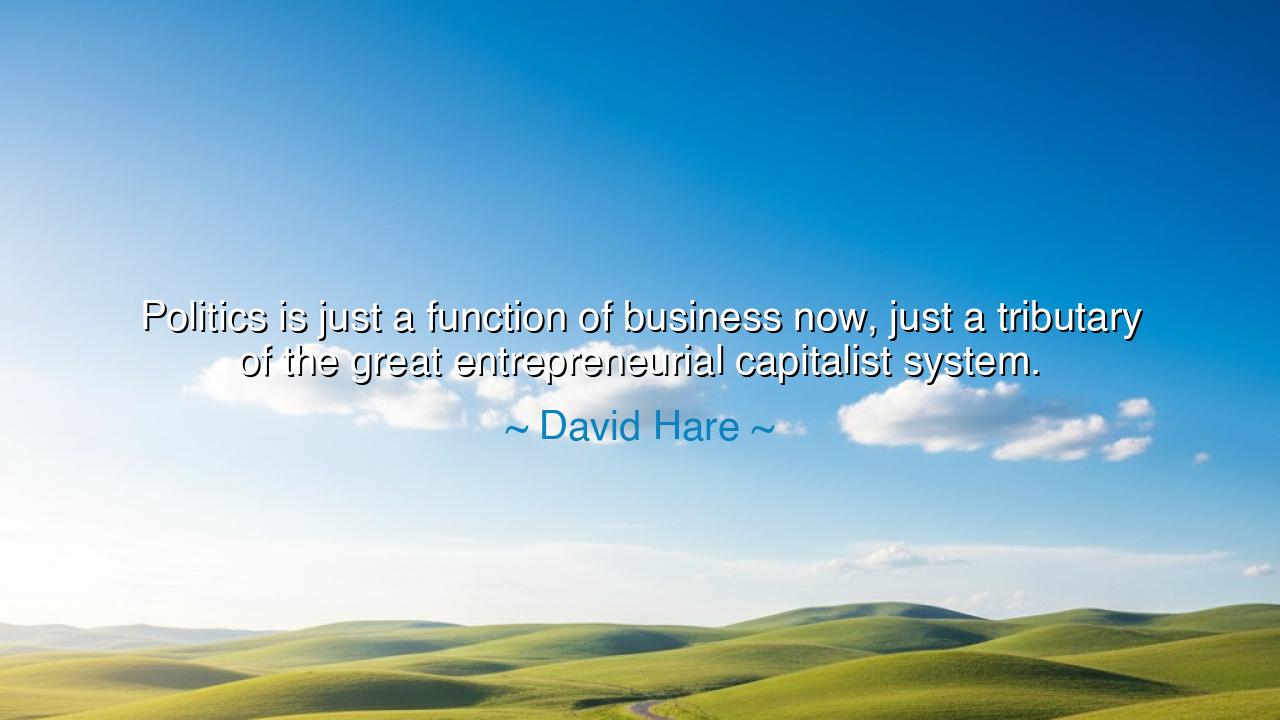
Politics is just a function of business now, just a tributary of
Politics is just a function of business now, just a tributary of the great entrepreneurial capitalist system.






The words of David Hare, “Politics is just a function of business now, just a tributary of the great entrepreneurial capitalist system,” unveil a sobering vision of our age. Where once politics was the guardian of justice and the steward of the people, it has become, in his lament, a mere tributary—a lesser stream feeding into the vast river of capitalism. Power, once measured in votes or virtue, now bends itself to the currents of wealth, profit, and enterprise.
The ancients, too, warned of this entanglement. Aristotle taught that the health of a polis was endangered when the pursuit of gain outweighed the pursuit of virtue. For when business governs the soul of the state, the strong grow stronger, the weak are forgotten, and justice becomes a commodity sold to the highest bidder. Hare’s imagery of politics as a tributary is not praise but warning: the river of capitalism has swallowed the independence of the state, and now the course of nations flows according to markets rather than morals.
History offers a clear mirror. In the days of the Gilded Age in America, industrial titans like Carnegie, Rockefeller, and Vanderbilt amassed fortunes so vast that governments bent beneath their influence. Laws were shaped to favor railroads and steel, wages remained meager, and corruption seeped into the very halls of Congress. Politics became indeed the tributary of business, and only through fierce struggle—labor strikes, reformers, and the Progressive movement—was some balance painfully restored.
Yet Hare’s words also reveal a deeper challenge to every generation. If politics is surrendered wholly to business, then the people themselves risk becoming not citizens, but consumers—valued not for their voice, but for their purchasing power. In such a world, ideals shrink, and the common good is overshadowed by profit. To see clearly, then, is to recognize that politics cannot simply drift downstream; it must find its own source, rooted in justice, service, and the dignity of human life.
Let this truth be remembered: wealth is a mighty servant but a terrible master. When capitalism commands politics, the state becomes a marketplace and the people its wares. But when politics reclaims its higher calling, it can guide business toward the common good. Thus, the task of the wise is not to reject commerce, but to keep its river within its banks—lest the flood consume the land it was meant to nourish.






AAdministratorAdministrator
Welcome, honored guests. Please leave a comment, we will respond soon